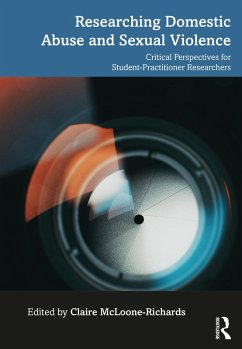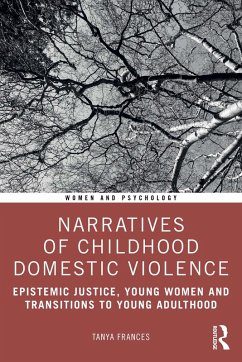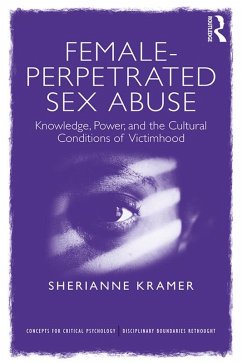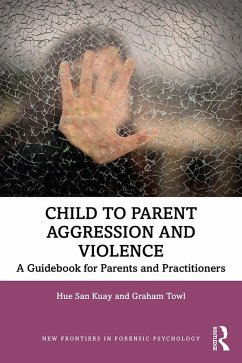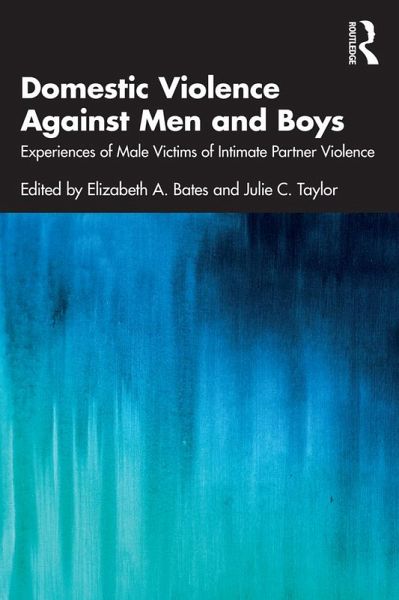
Domestic Violence Against Men and Boys (eBook, ePUB)
Experiences of Male Victims of Intimate Partner Violence
Redaktion: Bates, Elizabeth A.; Taylor, Julie C.
Versandkostenfrei!
Sofort per Download lieferbar
36,95 €
inkl. MwSt.
Weitere Ausgaben:

PAYBACK Punkte
18 °P sammeln!
Domestic Violence Against Men and Boys: Experiences of Male Victims of Intimate Partner Violence is a unique book that brings together contemporary research and practice around working with men and boys who are victims of domestic violence and abuse. The book features contributions from experts within the field who draw on the wide range of evidence that demonstrates the multifarious experiences and impacts of this victimisation.This text focusses on the increasing evidence related to the prevalence of domestic violence and abuse within the family towards men and boys. With contributions from ...
Domestic Violence Against Men and Boys: Experiences of Male Victims of Intimate Partner Violence is a unique book that brings together contemporary research and practice around working with men and boys who are victims of domestic violence and abuse. The book features contributions from experts within the field who draw on the wide range of evidence that demonstrates the multifarious experiences and impacts of this victimisation.
This text focusses on the increasing evidence related to the prevalence of domestic violence and abuse within the family towards men and boys. With contributions from experts within the field, this book covers a comprehensive list of topics derived from empirical evidence. The chapters focus on key themes, such as, experience of the abuse; challenges to the current theory; barriers and experiences of help-seeking; impact on children, and working with male victims within practice and criminal justice settings. Further, the text underscores numerous recommendations around changing current practices to enable a better support system for men and boys. The text will therefore be invaluable in increasing awareness of the research and support in the field of domestic violence.
This book will be of use to researchers, practitioners and educators working in the field of domestic violence and abuse. It will also be beneficial to policy makers who are reviewing legislation and those involved in commissioning psychological services, and victim services that work with male victims.
This text focusses on the increasing evidence related to the prevalence of domestic violence and abuse within the family towards men and boys. With contributions from experts within the field, this book covers a comprehensive list of topics derived from empirical evidence. The chapters focus on key themes, such as, experience of the abuse; challenges to the current theory; barriers and experiences of help-seeking; impact on children, and working with male victims within practice and criminal justice settings. Further, the text underscores numerous recommendations around changing current practices to enable a better support system for men and boys. The text will therefore be invaluable in increasing awareness of the research and support in the field of domestic violence.
This book will be of use to researchers, practitioners and educators working in the field of domestic violence and abuse. It will also be beneficial to policy makers who are reviewing legislation and those involved in commissioning psychological services, and victim services that work with male victims.
Dieser Download kann aus rechtlichen Gründen nur mit Rechnungsadresse in A, B, BG, CY, CZ, D, DK, EW, E, FIN, F, GR, HR, H, IRL, I, LT, L, LR, M, NL, PL, P, R, S, SLO, SK ausgeliefert werden.





